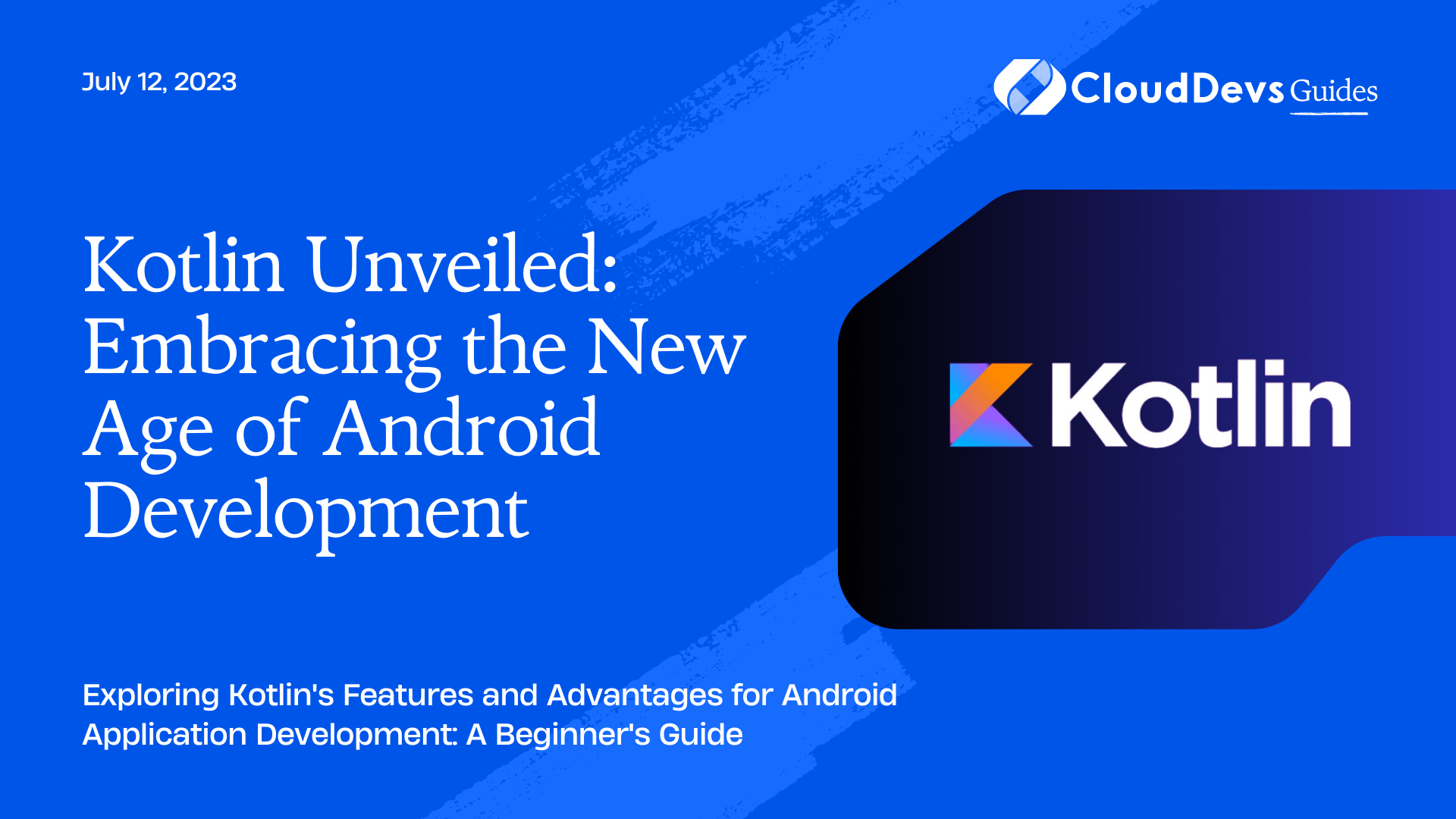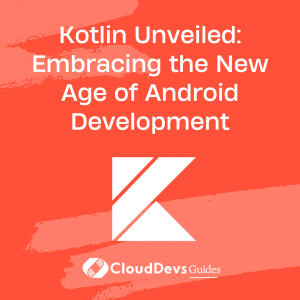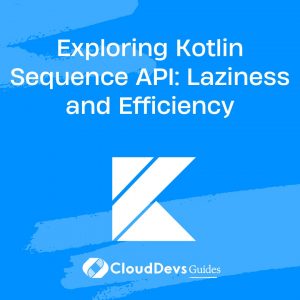Kotlin Unveiled: Embracing the New Age of Android Development
The world of mobile development is continuously evolving, with new languages and frameworks emerging regularly. Among these, Kotlin has risen as a leading player in Android application development, leading to an increase in businesses looking to hire Kotlin developers. Acclaimed for its simplicity and modern design, Kotlin is firmly establishing itself as the future of Android development. In this blog post, we’ll delve into Kotlin’s features and explore why more and more companies are choosing to hire Kotlin developers. With examples provided, this guide serves as a beginner’s pathway into the universe of Kotlin programming.
What is Kotlin?
Kotlin is a statically typed programming language developed by JetBrains, the company behind the IntelliJ IDEA, a widely-used integrated development environment (IDE) for Java. Kotlin is designed to interoperate fully with Java, meaning that you can use all existing Java libraries and frameworks in Kotlin applications, making the transition to Kotlin a smooth experience for developers.
Why Kotlin?
Google officially endorsed Kotlin as the preferred language for Android application development in 2017. This endorsement is backed by Kotlin’s multiple advantages over its counterpart Java, which was the de-facto language for Android development until then. Kotlin offers a more modern, expressive, and concise syntax than Java, allowing developers to write cleaner and more straightforward code. It also includes many features absent in Java, such as null safety, lambda expressions, and extension functions, leading to more robust and maintainable code.
Null Safety
In Kotlin, null safety is baked into the language’s type system. This feature helps prevent null pointer exceptions, a common runtime error in Java applications. The compiler ensures that nullable and non-nullable types are distinguished, reducing the chance of a null error.
Example:
```kotlin var name: String = "John Doe" // Non-nullable String name = null // Compilation error var nullableName: String? = "Jane Doe" // Nullable String nullableName = null // No compilation error ```
Lambda Expressions and Functional Programming
Kotlin fully supports functional programming, including first-class and high-order functions, making it more expressive than Java.
Example:
```kotlin
val numbers = listOf(1, 2, 3, 4, 5)
// Using lambda to filter and print even numbers
numbers.filter { it % 2 == 0 }.forEach { println(it) }
```
Extension Functions
Extension functions allow developers to extend a class with new functionality without having to inherit from the class. This feature leads to more readable and maintainable code.
Example:
```kotlin
fun String.isEmail(): Boolean {
return this.contains("@")
}
val email = "john.doe@gmail.com"
println(email.isEmail()) // Output: true
```
Kotlin for Android Development
Kotlin offers several benefits for Android development, enhancing productivity, maintainability, and application performance.
Reduced Boilerplate Code
Kotlin reduces the amount of boilerplate code, leading to a cleaner, more readable codebase. For instance, in Kotlin, the `data class` keyword automatically generates boilerplate code, such as `hashCode()`, `equals()`, and `toString()` methods.
Example:
```kotlin
data class User(val name: String, val email: String)
val user = User("John Doe", "john.doe@gmail.com")
println(user) // Output: User(name=John Doe, email=john.doe@gmail.com)
```
Coroutines for Asynchronous Programming
Kotlin introduced coroutines, a new way of writing asynchronous, non-blocking code. Coroutines simplify code that executes asynchronously, such as database or network access, by making it look like normal, sequential code.
Example:
```kotlin
import kotlinx.coroutines.*
// Launch a new coroutine
GlobalScope.launch {
delay(1000L) // Non-blocking delay
for 1 second
println("World!")
}
print("Hello, ") // This line is not blocked
Thread.sleep(2000L) // Wait for the coroutine to finish
```
Output:
```
Hello,
World!
```
Interoperability with Java
Kotlin is fully interoperable with Java, meaning you can have both Kotlin and Java code in your project and everything will compile and work perfectly. This interoperability is a significant advantage as it allows gradual migration from Java to Kotlin.
Conclusion
Given its modern, expressive syntax, powerful features, and full compatibility with Java, Kotlin is transforming the landscape of Android development. This change is precisely why many businesses are looking to hire Kotlin developers. Learning a new programming language can be challenging, but the rewards of embracing Kotlin are high: cleaner code, increased productivity, and better application performance. For anyone involved in Android development, whether looking to hire Kotlin developers or seeking to upskill, Kotlin is indeed the future and worth learning and applying in your next project.
Whether you’re a seasoned Android developer looking to improve your craft or a novice embarking on your first app project, Kotlin offers a world of possibilities to build robust, high-performance, and maintainable Android applications. With the rise in demand to hire Kotlin developers, it’s evident that Kotlin is not just the present, but unquestionably the future of Android development.
Table of Contents









